Life at the Temple is not limited to seated meditation—it is expressed through every daily action: cooking, working the land, sewing, painting, working together, walking in nature.
Everything becomes an opportunity to cultivate attention, presence, and harmony.
This section presents the various activities offered, open to those who wish to approach the practice, immerse themselves in community life, or deepen their inner journey.
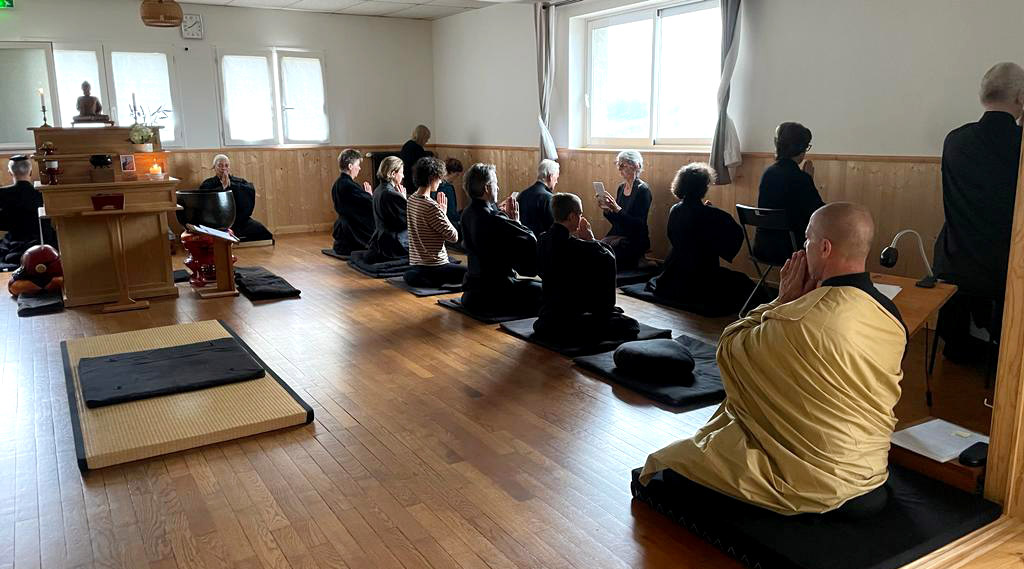
Daily Zen meditation
At Gyogenji Zen Temple, you can take part in daily Zen meditation, known as “zazen”.
Sessions are open to everyone and take place on weekdays in the morning at the following times:
If it is your first time, an introduction to the practice is required. This usually takes place on Saturday morning before the meditation.
For more information please contact us: dojo@bodai.it
Caring for the organic vegetable garden and orchard allows us to grow fruits and vegetables while following the rhythms of the seasons.
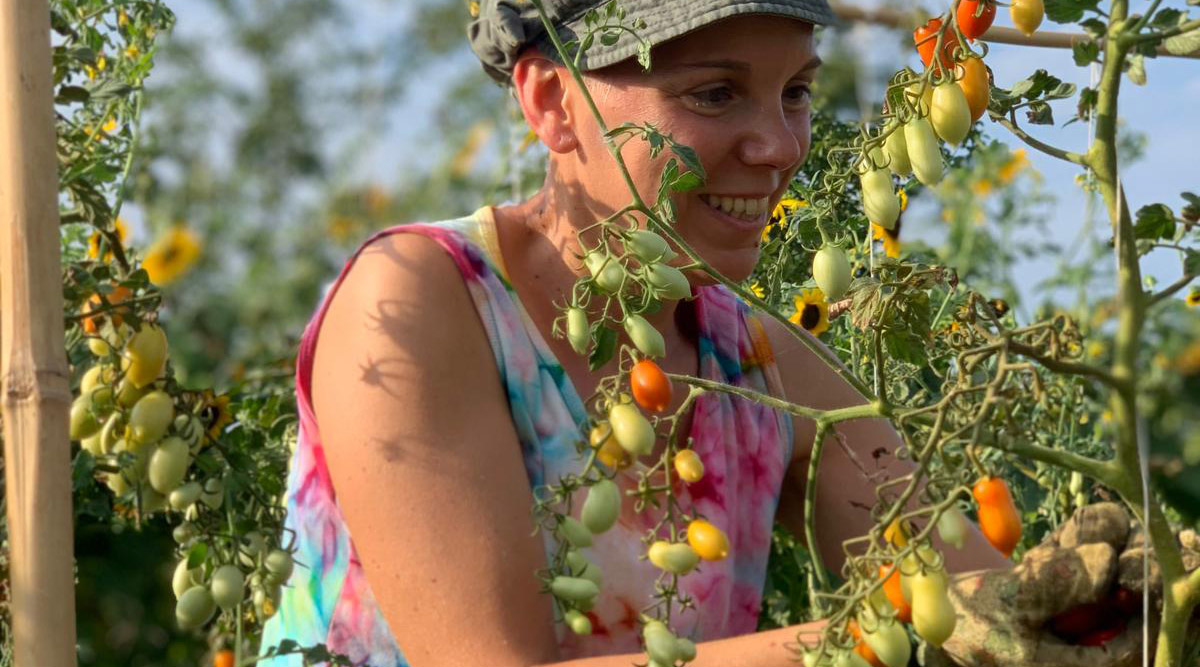
Participants engage in preparing the soil, installing irrigation systems, transplanting seedlings and watering, following all stages of cultivation up to final planting.
Compost management transforms organic waste into natural fertilizer, improving soil fertility in an ecological way.
The cultivation of aromatic herbs and medicinal plants offers ingredients for herbal teas and natural remedies.
Each season culminates in the harvest, during which practitioners also learn how to collect and preserve seeds, essential for maintaining biodiversity.
Maintaining the surrounding forest helps keep the ecosystem healthy, with tasks such as clearing trails and growing native species. The bamboo grove and pond are also tended to, ensuring balance in the local aquatic ecosystem. In the meadows, practitioners take part in mowing and soil care, promoting regeneration and preserving the natural landscape.
The planting of seasonal flowers enriches the gardens with colors and fragrances. Daily tasks include watering, pruning, and weeding, to maintain a harmonious environment.
Finally, working in the apiary gives practitioners the opportunity to explore the fascinating world of bees.

During this one-day experience, you’ll have the opportunity to explore the sacred spaces of the Temple – from the garden to the meditation hall. You will discover the daily life of the monks, their routine, and the practice of zazen.
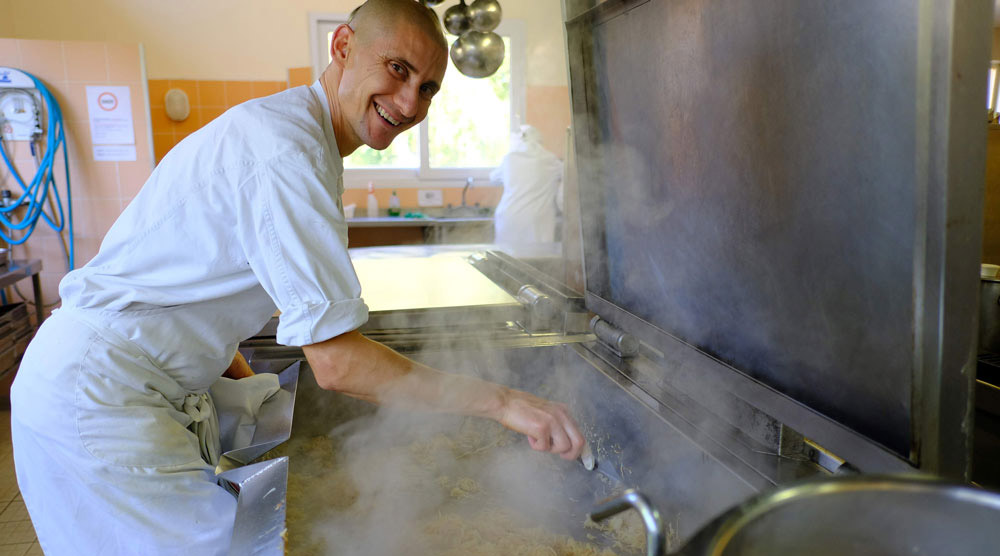
The visit includes moments of silence and reflection to approach the world of Zen Buddhism.
A weekend of total immersion in the calm of the Temple, to rediscover your inner balance.
Through meditation, communal work (samu), and contact with nature, you will have the chance to free yourself from daily stress. These two days offer a deeper understanding of Zen practice and a greater awareness of yourself.
A longer experience that allows you to fully live monastic life, immersing yourself in every aspect of Zen practice. Each day is dedicated to meditation, samu, and reflection, in an environment that supports spiritual growth. This journey leads to a profound inner transformation with lasting impact on daily life.
The Program for Inner Architecture (PAI), developed by Master Beppe Mokuza, is a path of personal and spiritual transformation, open to all—no previous experience is required.
It is intended for those who wish to reconnect with themselves, their vitality, and what truly matters in life.
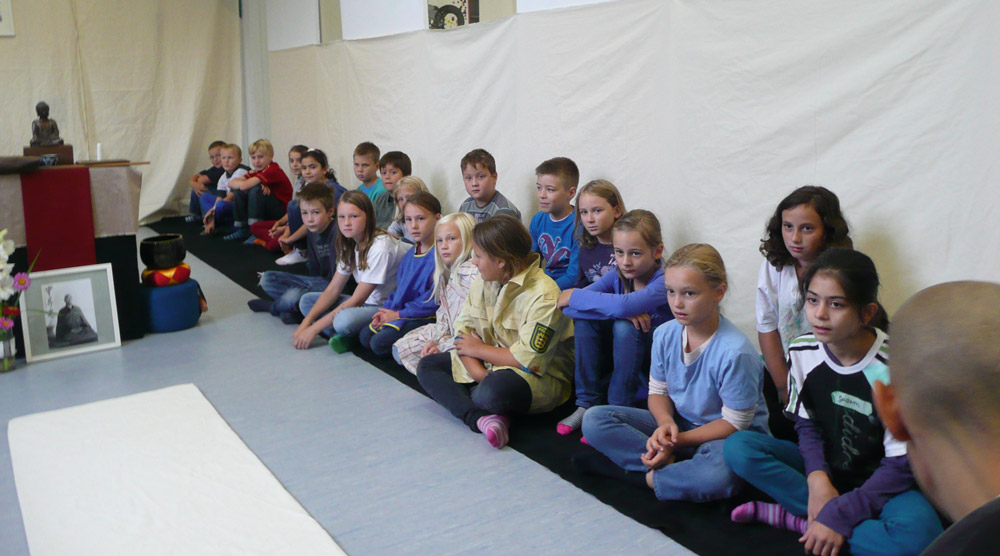
PAI Activities
The PAI program is rooted in six educational areas that work integrally on body, mind, and spirit:
Following the guidance of senior monks, the recommended minimum duration of the PAI is six months, allowing new habits and awareness to take root.
This is not a finish line, but a seed – from which a lifelong personal path may grow.
PAI is an invitation to build your inner architecture day by day, gesture by gesture, laying the foundations of life in peace, presence, care, and true freedom.
Throughout the year, we organize intensive retreats that offer the opportunity to fully enter the life of the Temple. These retreats, known as sesshin (“to touch the mind”), are precious moments to dedicate oneself entirely to practice, stepping away from daily distractions and focusing inward.
Each sesshin unfolds in an environment of deep silence and contemplation, where participants engage in zazen, samu (meditative work), and shared meals following traditional Zen monastic customs.
Every daily action—from cooking together to maintaining shared spaces—becomes part of the practice, teaching mindfulness and presence in every moment.
No previous experience is required. The retreats are open to all. Sesshin provides the opportunity to explore one’s mind and heart in depth, fostering a more authentic connection with oneself and with others.
These workshops offer a unique experience that combines meditation and the art of Japanese Sumi-e painting. Each day begins and ends with zazen, creating an inner calm that supports concentration and openness to the creative process.
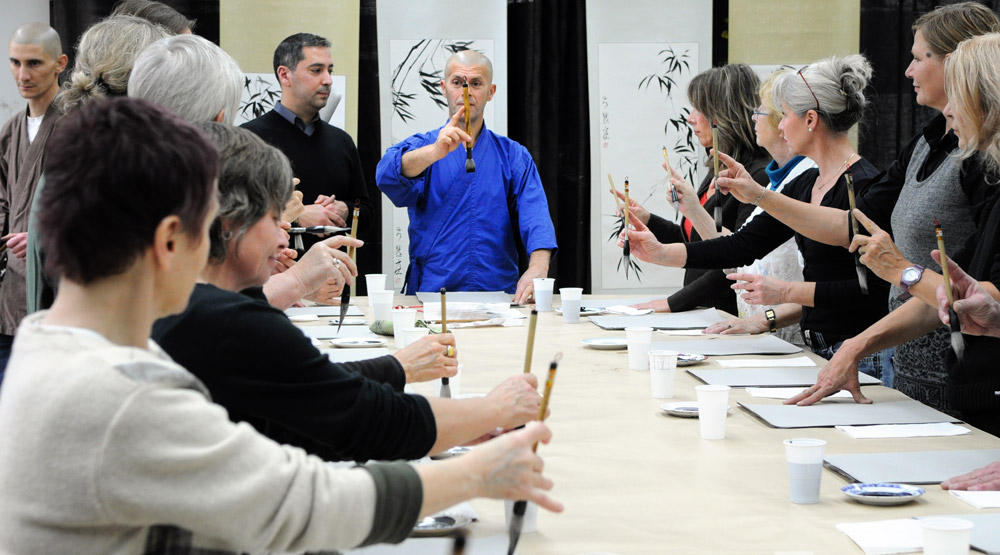
Sumi-e Workshop
During the workshop, participants work in a serene, silent atmosphere, with attention focused on the process rather than the outcome.
The practice of Sumi-e is not about competition or technical perfection. It is an opportunity to refine sensitivity and creativity. With brush in hand, each stroke reflects the inner state of the practitioner—a practice of patience and kindness toward oneself. Mistakes are not judged, but welcomed as part of the journey, teaching how to live in the present moment and cultivate compassion for one’s imperfections.
Through the fusion of meditation and art, participants discover how painting can become a form of inner expression. This workshop is open to everyone – no experience required.
The sewing of the kesa—the Buddhist monastic robe—is an ancient practice that goes beyond simply crafting a garment. It is an act of devotion, a form of meditation, and a visible representation of Dharma transmission.
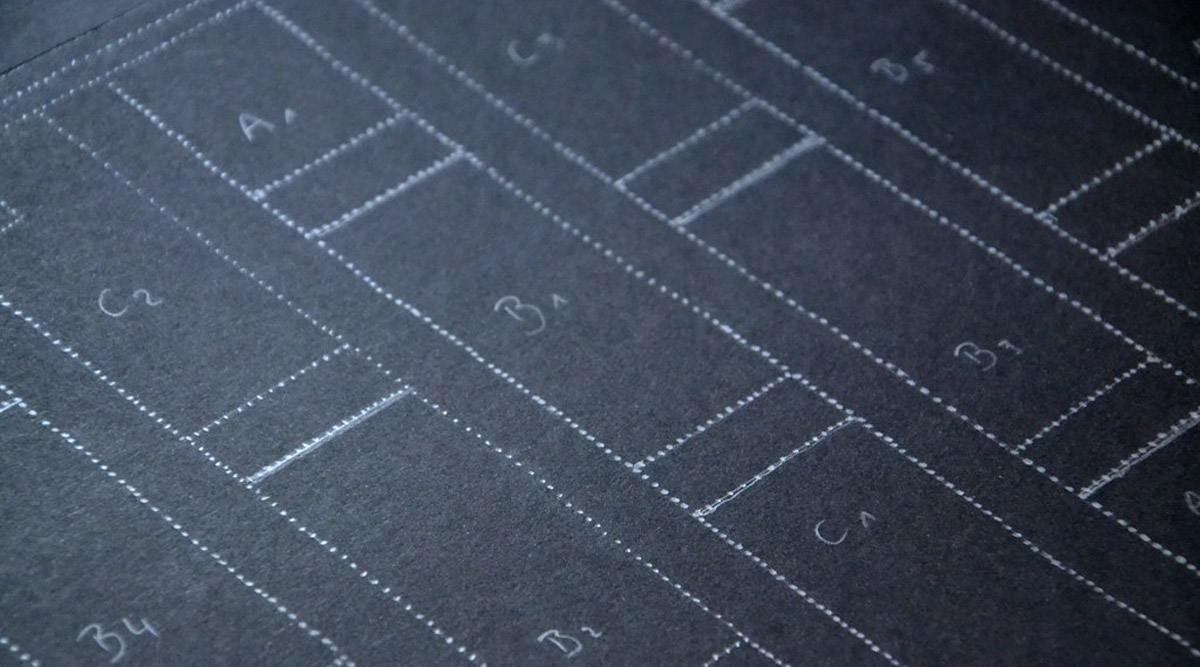
Kesa Sewing